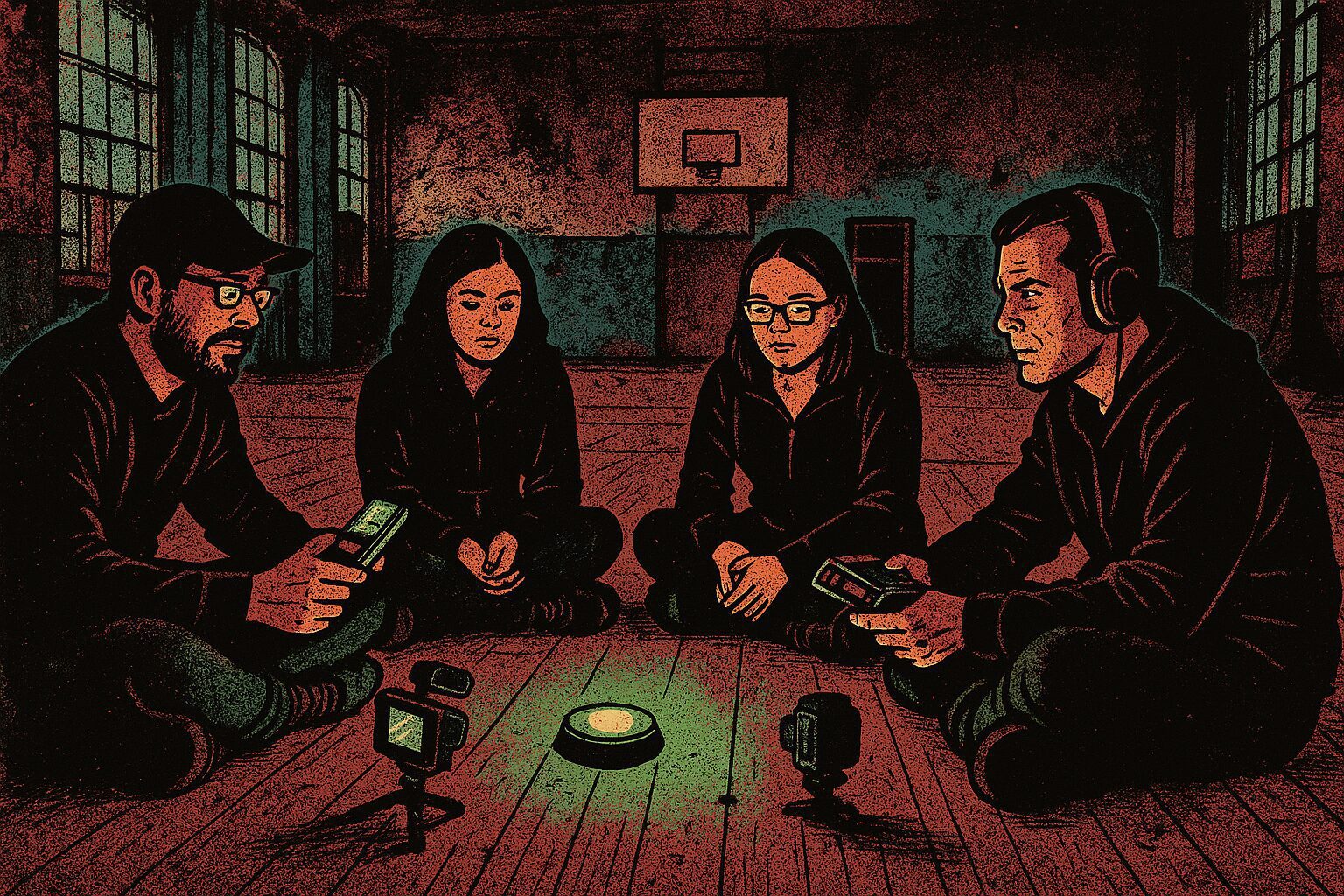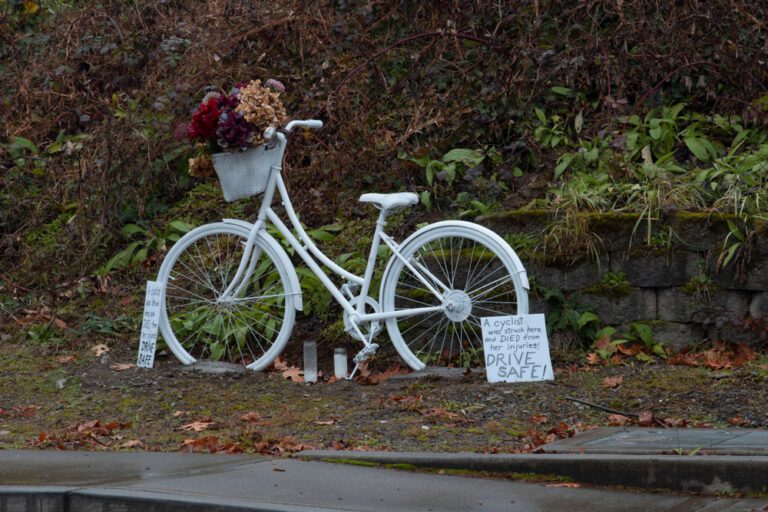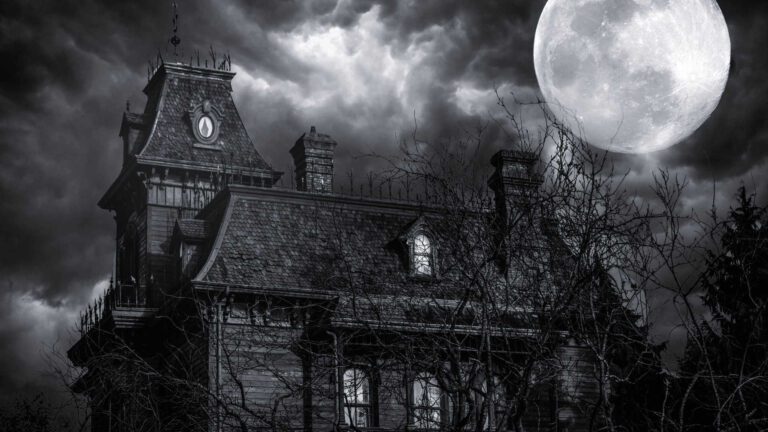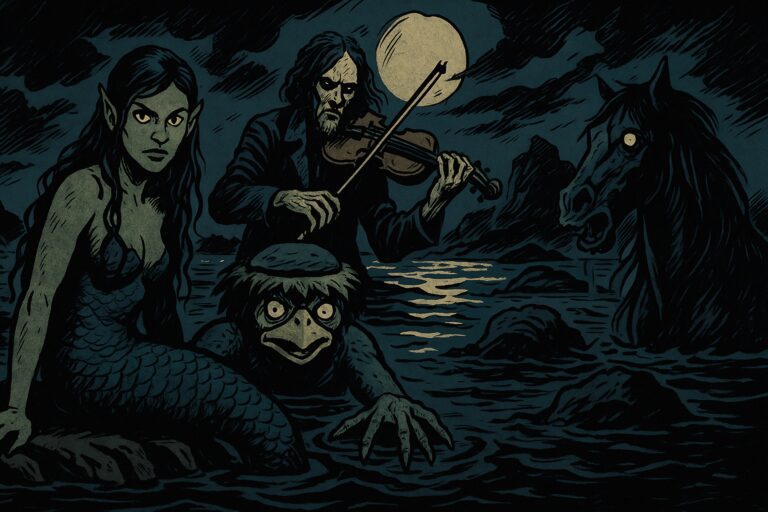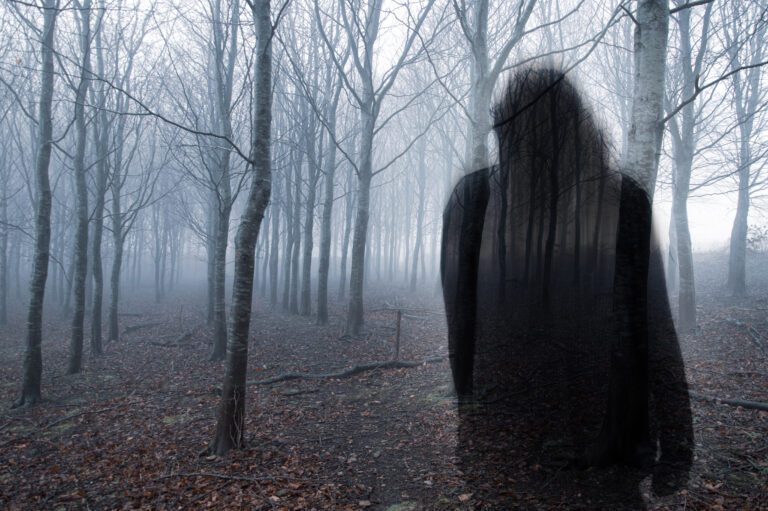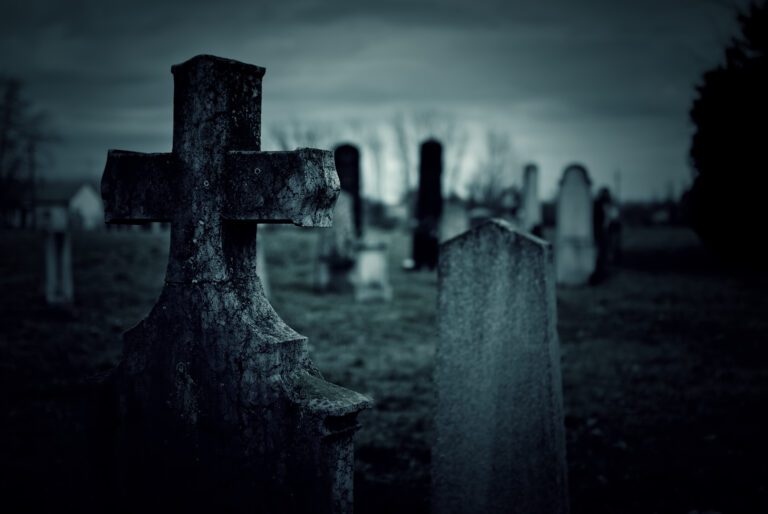Roles in a Ghost Hunting Team
Hi gang. It’s been ages since I wrote this article on ghost hunting team roles. While I don’t think much has changed, it’s always good to revisit a topic from time-to-time. So, let’s check out the different roles. By the way, I wouldn’t call these jobs because you usually don’t get paid for investigating. I also added some misconceptions about teams. Get the scoop after the jump.
Key Takeaways
- Ghost hunting team roles include Lead Investigators, Case Managers, and Tech Managers, each with specific responsibilities in evidence collection.
- Misconceptions about ghost hunting teams include beliefs that they’re all psychics, it’s dangerous, and teams make a lot of money.
- Most ghost hunting teams are volunteer-based and rely on technology and historical research rather than spiritual abilities.
Table of contents
- Core Investigation Team
- Misconceptions About Ghost Hunting Teams
- Misconception: Ghost hunting is always like it appears on TV.
- Misconception: Ghost hunters are all psychics or mediums.
- Misconception: Ghost hunting is dangerous and involves aggressive spirits.
- Misconception: Ghost hunters always find definitive evidence of ghosts.
- Misconception: Ghost hunting teams make a lot of money.
Core Investigation Team
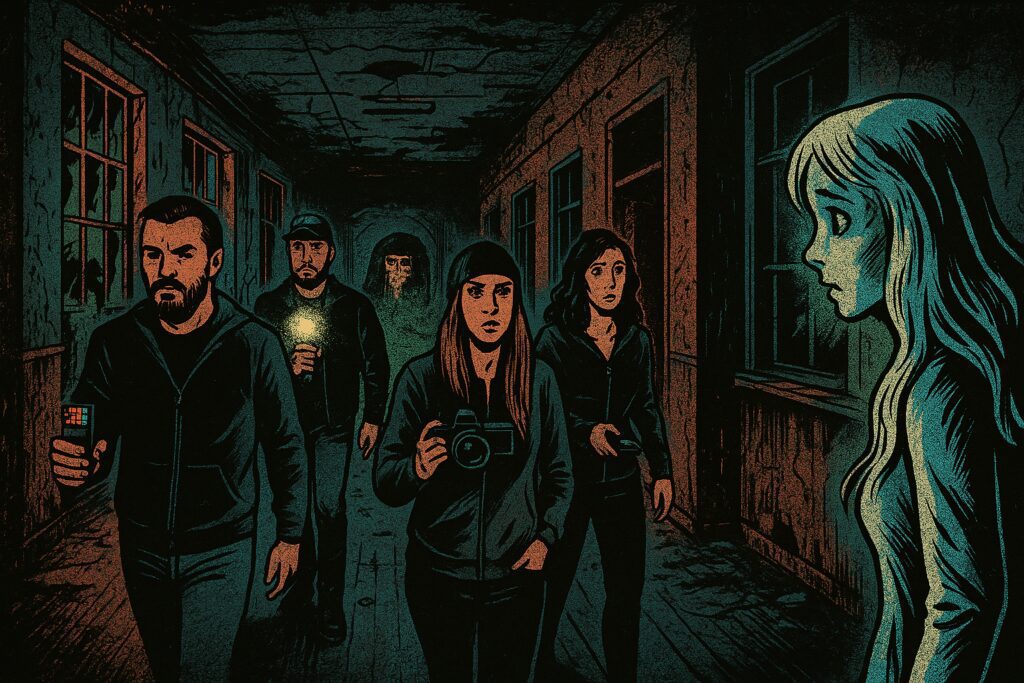
The core investigation team includes the people that go out and get the evidence. It should be a pretty close knit team. It may have 4 people, mainly investigators, and a tech manager. Most of the other work happens back at the HQ. Let’s take a look at these jobs.
Lead Investigators
The person with the most field experience. A lead investigator helps set the plan to collect evidence, which cases to take, who to bring to the ghost hunt, and what gear to bring. They may also be the face of the team to the public. In some cases, they have final approval on new team members. No matter what, they should be a mentor and advocate for group. Read more about Lead Investigators.
Investigators
Similar to the Lead Investigator, this role is also about the tactics of getting evidence. They usually don’t have much input on which cases to take and what gear to bring. However, they do have input on those topics.
Paranormal Case Managers
The case manager acts as the organizational backbone of a ghost hunting team, handling client interactions, ensuring thorough preparation, documentation, and facilitating effective communication throughout the investigative process. Read more about Case Managers.
Paranormal Tech Managers
A tech manager ensures that all technological aspects of ghost hunting run smoothly, enabling the team to effectively capture, document, and analyze potential paranormal phenomena. There’s one big drawback to being a tech manager, which you can read more about in their job profile.
Evidence Analysts
An evidence analyst acts as the investigative backbone of a ghost hunting team, applying rigorous analytical skills to verify paranormal occurrences, providing credibility, clarity, and accountability to the team’s investigative outcomes. Most specialize in a certain type of evidence like video, audio, environmental factors, or photography. Learn more about Evidence Analysts.
Paranormal Research Managers
A Paranormal Research Manager plays a crucial role by providing the investigative team with deep historical insights and context, significantly enhancing the team’s ability to interpret paranormal phenomena accurately and effectively. Read more about Research Managers.
Optional Roles On A Ghost Hunting Team
A Demonologist is an expert who studies and investigates alleged demonic or negative spiritual entities. They specialize in recognizing, managing, and mitigating cases involving potential demonic phenomena.
An Occultist specializes in studying esoteric knowledge, including magic, rituals, spiritualism, divination, and symbolic practices. On a ghost hunting team, they use their specialized knowledge of mystical traditions to help teams understand paranormal events linked to occult practices.
Psychic mediums or sensitives contribute intuitive perspectives to complement the scientific methods used by the team.
A Cryptozoologist brings expertise in investigating legendary or undiscovered creatures, such as Bigfoot, Mothman, or lake monsters. On a ghost hunting team, they address paranormal cases involving creatures of folklore and legend.
A UFOlogist specializes in investigating unidentified flying objects (UFOs), extraterrestrial encounters, and related phenomena. In short, a UFOlogist helps teams explore paranormal phenomena that may overlap with extraterrestrial or aerial mysteries.
Misconceptions About Ghost Hunting Teams
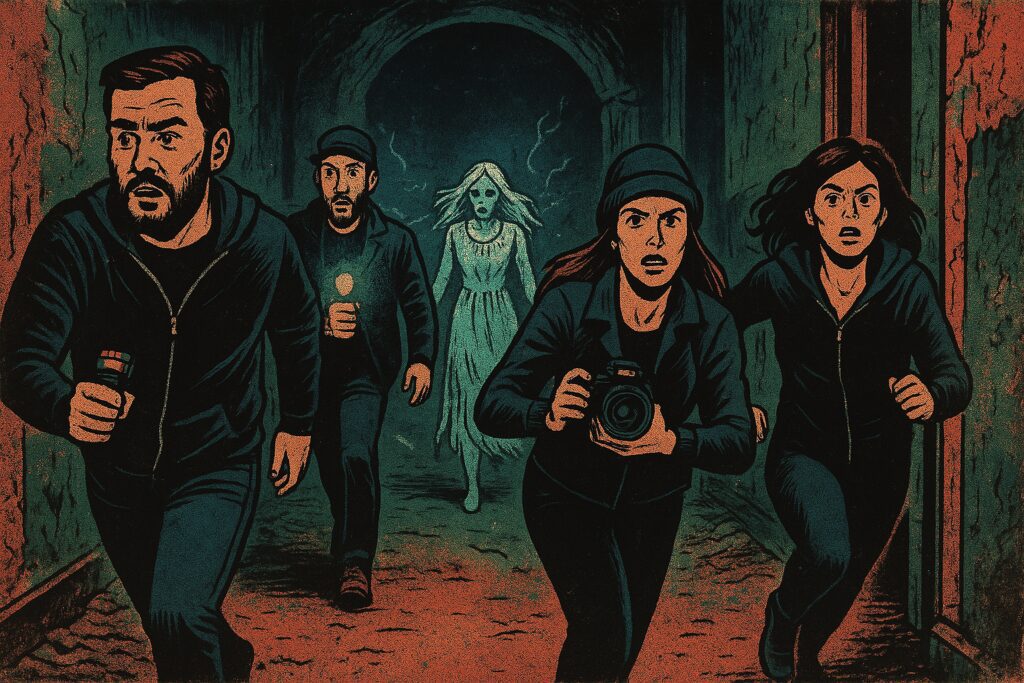
Let’s be real for a minute here. Ghost hunting is a pretty niche pursuit, and the general public only knows what they see on TV and the movies. So, here are five common misconceptions about ghost hunting teams I’ve encountered:
Misconception: Ghost hunting is always like it appears on TV.
Reality: Paranormal investigations are often quiet, uneventful, and involve long periods of careful observation, analysis, and documentation, rather than constant action and excitement.
Ghost hunting reality TV shows spend days at a haunted place and film non-stop. They get so much footage that they can edit all the good stuff together for a 44-minute long show. However, the other 71 hours and 16 minutes of footage is boring AF. After all, reality is boring until you edit it.
Misconception: Ghost hunters are all psychics or mediums.
Reality: Most team members rely primarily on technology, observation, historical research, and evidence analysis. While some teams include psychics, many investigators approach their work scientifically, without psychic abilities.
Usually, a team will call in a psychic they trust, and some have a sensitive on the team. Rarely is a team comprised of only psychics and mediums. In fact, I’ve only known psychics and mediums to work solo.
Misconception: Ghost hunting is dangerous and involves aggressive spirits.
Reality: Paranormal activity is rarely aggressive or harmful. Most investigations involve documenting subtle phenomena rather than encountering violent spirits.
I’ve been investigating reports of ghosts and hauntings for 17 years now, and I’ve never been threatened by a ghost or spirit. Believe me: The living are always more dangerous than the dead. Stay aware of your surroundings at all times, especially if you investigate a private residence. That’s where danger may find you.
Misconception: Ghost hunters always find definitive evidence of ghosts.
Reality: Genuine paranormal evidence is quite rare. Teams often spend hours reviewing footage and audio, frequently finding mundane explanations rather than paranormal ones.
This one makes me chuckle inside. For the most part, everything you find and document will be debunked. Unless you have Grandpa Charlie manifest in front of strangers on cue, someone will find a rational reason for it. No one will believe you even if you show pics, videos, and audio recordings. That’s because people have to experience it for themselves. So, invite some folks along with you, and let them make the discovery for themselves.
Misconception: Ghost hunting teams make a lot of money.
Reality: The majority of paranormal investigation teams volunteer their time and rarely profit financially from investigations. Most fund their activities out-of-pocket or through donations, driven by passion and curiosity rather than financial gain.
So … ghost hunting is expensive. You have to travel to the haunted place. Sometimes you have to rent it. Then, you have to pay for food, gas, gadgets, analysis software, blahblahblah. It adds up. On top of that, if you even asked for some cash for your time, you’ll get cancelled by the ghost hunting community.
If you want to make some bucks, then start a tour company or make a presentation and sell tickets. Another idea is to make a YouTube channel with your ghost hunts and monetize it. You could also write an ebook and sell it on Amazon.
Sources:
“Building a Paranormal Investigation Team: Roles and Responsibilities.” The Paranormal Playground, May 2022, https://theparanormalplayground.co/building-a-paranormal-investigation-team/.
“Form Your Own Ghost Hunting Team: A Step-by-Step Guide.” Haunt Scout, Sept. 2022, https://www.hauntscout.com/articles/form-your-own-ghost-hunting-team/.
“The Yonkers Ghost Investigators Team Responsibilities.” Yonkers Ghost Investigators, https://www.yonkersghostinvestigators.com/team-responsibilities.html.
“10 Careers in the Paranormal To Consider.” Indeed, Jan. 2023, https://www.indeed.com/career-advice/finding-a-job/careers-in-the-paranormal.
“Advice on Starting Up a Paranormal Investigation Group.” Reddit, June 2022, https://www.reddit.com/r/GhostHunting/comments/1ft5usi/advice_on_starting_up_a_paranormal_investigation/.
“8 Common Paranormal Myths Debunked.” Haunt Scout, 9 months ago, https://www.hauntscout.com/articles/common-paranormal-myths-debunked/. This article addresses and clarifies several myths associated with paranormal investigations.
“Top 10 Paranormal Myths.” Travel Channel, https://www.travelchannel.com/interests/haunted/articles/top-10-paranormal-myths. This piece explores prevalent myths in the paranormal realm and provides insights into their origins and realities.
Radford, Benjamin. “Ghost-Hunting Mistakes: Science and Pseudoscience in Ghost Investigations.” Skeptical Inquirer, Nov. 2010, https://skepticalinquirer.org/2010/11/ghost-hunting-mistakes-science-and-pseudoscience-in-ghost-investigations/. This article critically examines common errors and misconceptions in ghost hunting practices.
“Ghost Hunting.” Wikipedia, last edited 2 weeks ago, https://en.wikipedia.org/wiki/Ghost_hunting. This entry provides an overview of ghost hunting, including discussions on skepticism and critiques of investigative methods.
Thanks for reading Ghostly Activities. Much appreciated. Take care!
Discover more from GHOSTLY ACTIVITIES
Subscribe to get the latest posts sent to your email.
